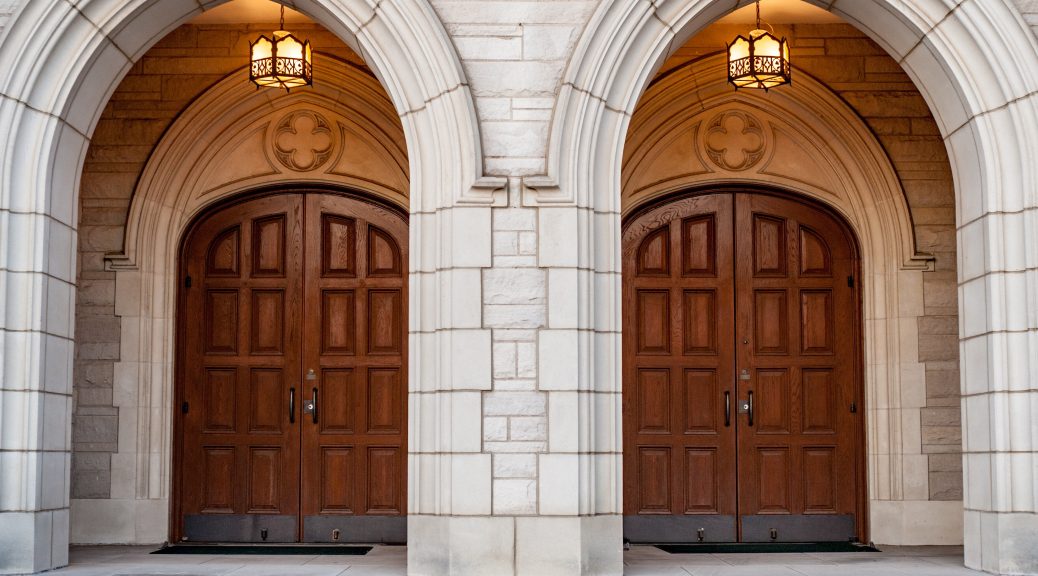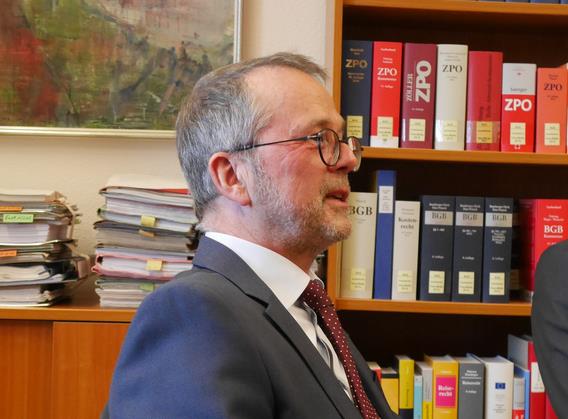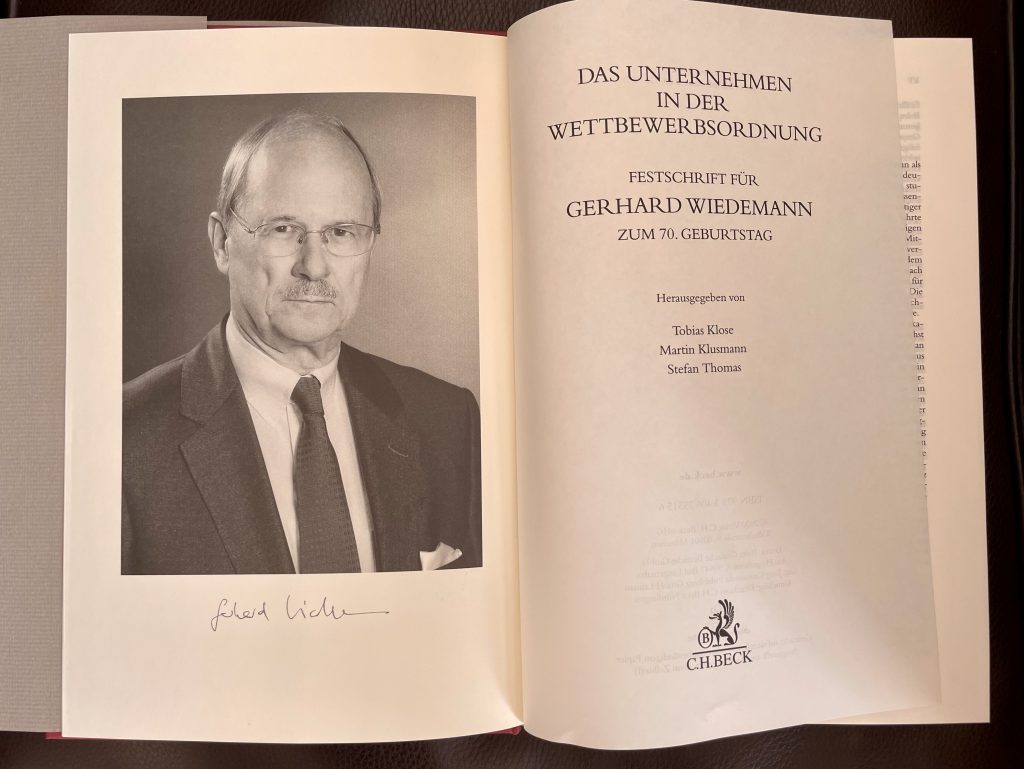
SSNIPpets (44): One out of two
How fortunate that winter has returned once again, restaurants in Düsseldorf are still closed and the vaccinations are taking their time. This way Rupprecht Podszun can first sift through all the antitrust snippets that have piled up on his desk. Today it’s all about China, drug prices and birthday parties. Here are his SSNIPpets – small, but significant news, information and pleasantries – our pet project!
Choose one of the two
In China, there is not exactly competition for leadership positions (unlike in Germany at present), on the contrary: Xi Jinping, General Secretary of the Communist Party since 2012, is cementing his power. The master bricklayers in Beijing have apparently also discovered antitrust law as a building material. The trading platform Alibaba was fined by the State Administration for Market Regulation because of its exclusivity ties – 2.3 billion euros are to be paid. The policy at issue is called 二选一, meaning “èr xuǎn yī”. (Please pay attention to the correct pitch when pronouncing it). In English, this means something like “choose one of two” (an appropriate headline also for the German pitch of two politicians for the Merkel-succession). Traders who sell on Alibaba apparently have to choose this platform exclusively and are not allowed to offer their goods elsewhere – not an entirely unknown phenomenon. Alibaba’s market share in China is said to be 58% (you know what that means – China is, after all, a market with around 1.4 billion consumers. There is information about Alibaba in Europe here, although already a year old).
Still, one has mixed feelings about this “anti-tipping fine”. The Chinese government has also lashed out at Alibaba founder Jack Ma’s fintech business, the Ant Group (with Alipay), with a trowel. When regulators halted Ant’s record IPO in November, Jack Ma disappeared from the public eye for several weeks. He has since reappeared, but – unlike in the past – is keeping a low profile. Now the Ant Group is being split up and placed under the supervision of the financial supervisory authority. The accusations against the super-successful fintech seem plausible at first sight: I read that it’s about unregulated lending, in which the Ant Group is escaping liability, but reaping all the profits.
Escaping liability seems to be a core quality of platform superstars: Take a large chunk of the profits, but externalise your costs – or make your platform users bear the liability. Walter Eucken, our ordoliberal luminary, left us this sentence for working competition: “He who takes the profit, must also bear the costs.”
But back to China: It is difficult to judge from Düsseldorf whether the measures taken by the Chinese enforcers are necessary from a regulatory point of view or whether antitrust law is being politically instrumentalised. Are Xi and the CP only interested in taking out a star with great power who has become inconvenient? Jack Ma had publicly mocked old-fashioned regulators last year, and, as reported in this powerful portrait in the Financial Times (thanks to Julian Nowag on Twitter for the recommendation!), he had repeatedly flaunted his economic power. Unlike some tech colleagues, Ma has kept his distance from CP (“love the government, but do not marry it”).
The digital giants with their aggressive business models even have what it takes to go over the head of China’s all-powerful CP.
While still contemplating where to put my sympathies in this case, there is one detail of this story that is really upsetting: After that billion-dollar fine, Alibaba published a statement that you should read. Since you usually do not click on those great links we provide, I have copied three sentences here for you:
“The penalty issued today served to alert and catalyze companies like ours. It reflects the regulators’ thoughtful and normative expectations toward our industry’s development. It is an important action to safeguard fair market competition and quality development of Internet platform economies.”
So, Alibaba Group is glad and grateful that the wise antitrust authority is pointing the way into the light with a record fine. So many ironic remarks would be so obvious now! But I am somehow very sure that Margrethe Vestager and Andreas Mundt and other are glad and grateful that they do not receive such letters from Google, Facebook, Siemens & Co. I prefer the relentless dispute in courts over the quick enforcement of harsh measures against corporations that then engage in sycophantic self-criticism.

Screenshot from Twitter: Joe Kaeser, Siemens CEO at the time, showed little gratitude for the prohibition of his company’s merger with Alstom, commenting on a tweet by Commissioner Vestager.
Excesses
This week, the European Commission published its Aspen decision. At issue here: A crime against humanity Abusively inflated prices for cancer drugs. Aspen has not pulled the punches in its pricing, if one may put it that way. After taking over the drugs portfolio from GlaxoSmithKline in 2009, pricing came under scrutiny.
The Commission likes to quote from internal documents and while this may be a worry to counsel, it always makes for a good narrative story. The insights in Aspen are definitely material for true crime documentaries: When people at the company realised that frail cancer patients were hugely dependent on their medicines almost throughout the EEA, it was decided to make a “big push” in pricing towards health authorities. The strategy: If health authorities do not approve of new horrendous financial demands (price increases of a few hundred percent) Aspen stops the supplies to that country. Internally, someone raised an objection:
“this is totally unrealistic in today’s environment”
You wish! It worked: When Aspen stopped supplying, the health authorities relented and were willing to accept the price increases. In an email dated 27.2.2013, one Aspen employee writes to another:
“we have pulled reimbursement in Romania and Czech (sic) and in both cases when we did this the MOH [Ministry of Health] reverted and re-entered negotiations – the outcome in Czech (sic) is prices have been approved from [M]ay”
That’s why there is antitrust law: because a company with power shall not force customers to accept any price – or else stop supplying medication to frail cancer patients. Phewwww. Let’s take a breath here.

Nevertheless, the question remains: what is a fair price? Even pharmaceutical manufacturers are not obliged to be charitable organisations or to agree to everything that the health authorities want to reimburse. (As an aside, this is also a discussion that comes up every now and then with the Corona vaccine).
To clarify this question, the Commission goes bananas unpacks the aging ECJ case United Brands (27/76): Prices must not generate excessive profits, and they must not be unfair. The former is worked out by a cost/profit analysis – and the latter? What is an unfair price again? In Aspen’s case, at any rate, the prices are “unfair in itself”, and the Commission ties in with the ECJ’s reasoning that the price must be proportionate to the economic value of the service provided. Ah, good old competition on the merits! Walter Eucken would probably love that! What does it mean more specifically in this case?
“Aspen’s prices and profits neither reflect any commercial risk-taking activity, nor innovation, nor investment, nor any material improvement regarding the Products.”
That IS competition on the merits. This passage also contains comforting news for the research-based pharmaceutical manufacturers: the Commission emphasises that patent protection had already expired 50 years ago (there were apparently no generics on the market). So in the patent protection phase, very high prices seem to remain possible. Nevertheless, one will be able to discuss further this pretty link of investment and profit for “unfair in itself”.
Disclaimer: The Commission’s findings are only preliminary, as Aspen has made commitments that have now been declared binding.
Incidentally, Germany was not affected by the extortive tactics in the same way. The reason emerges from an Aspen mail exchange in 2011:
“beauty about this is that the official German price is significant (sic) higher and can be used as reference in many other countries at this level.”
The German price was apparently so high that it could serve as a reference price for the grotesque price increases in most other states. I love our health system!
Judicial headwinds

The courts do not go along with everything cartel authorities do. That is good and right, and has universal validity (at least in countries where the rule of law is a working principle) (Hey Alibaba, how are you today?). Sometimes the authorities come up against what they see as stubborn courts. And courts are especially stubborn when it comes to opening up patent law with competition arguments.
Enter Rebecca Kelly Slaughter, Acting Chairwoman of the US Federal Trade Commission (FTC). She had already impressed me at the Bundeskartellamt’s International Cartel Conference this year. This is the context: The FTC had sued chip manufacturer Qualcomm in 2017 over its patent licensing practices. The lawsuit was controversial, FTC Commissioner Maureen Ohlhausen formulated a dissenting opinion to her colleagues at the time. She stated that she only very rarely writes such special opinions. And further:
“Yet, in the Commission’s 2-1 decision to sue Qualcomm, I face an extraordinary situation: an enforcement action based on a flawed legal theory (including a standalone Section 5 count) that lacks economic and evidentiary support, that was brought on the eve of a new presidential administration, and that, by its mere issuance, will undermine U.S. intellectual property rights in Asia and worldwide. These extreme circumstances compel me to voice my objections.”
(Did you notice the word Asia = China? We’re staying on topic today!)
The FTC prevailed in the District Court, but Qualcomm won in the US Court of Appeals for the Ninth Circuit in San Francisco in August 2020. The FTC requested an en banc hearing in this court. Eleven judges would then have reconsidered the decision of the three-judge panel that had initially ruled. But the Eleven graciously declined the invitation. The FTC could now have petitioned the Supreme Court. It didn’t. Rebecca Slaughter:
“Given the significant headwinds facing the Commission in this matter, the FTC will not petition the Supreme Court to review the decision of the Court of Appeals for the Ninth Circuit in FTC v. Qualcomm. (…) I continue to believe that the district court’s conclusion that Qualcomm violated the antitrust laws was entirely correct and that the court of appeals erred in concluding otherwise. ”
Remarkable.
Honouring Peter Meier-Beck
Patents are a very complicated subject, especially when they collide with antitrust law. This overlapping area of two inherently difficult legal matters must first be mastered – and this brings us to the “birthday party” section of this blog. Re patents: The European Commission, which would like to see a little more action on standard-essential patents (SEPs), has currently resorted to holding online talks on patent law via Teams. Well, okay.
Others write about it all the more. The occasion: Prof. Dr. Peter Meier-Beck, presiding judge at the German Federal Supreme Court, has turned 65, and the members of his senates, as Klaus Bacher writes in the preface, have taken this as an opportunity to initiate a liber amicorum with more contributions than the jubilarian can count in years, paying tribute to the areas of law that Meier-Beck has, indeed, shaped. It is a thick issue of the IP journal GRUR: issue 2/2021 has over 280 pages. In this blog, the honouree spectacularly shared his critical thoughts on the Federal Constitutional Court’s ruling some time ago, when the Constitutional Court, neighbouring in Karlsruhe to Meier-Beck Supreme Court, questioned the supremacy of European law. But back to the Festschrift:
There is a lot to find on patent law, including FRAND and SEP. Peter Meier-Beck worked in patent law for many years, first in Düsseldorf, then in Karlsruhe (nota bene as an honorary professor for this field at our Heinrich Heine University in Düsseldorf as well). Among the many tributes from the IP community, however, some original competition law contributions have also been smuggled in. Meier-Beck took the chairmanship of the newly established Cartel Senate in 2019 only. (Before he had been a judge in that senate, but competition matters had only been dealt wit on a case-by-case basis in a senate that had been presided by the President of the Bundesgerichtshof).

Colleagues from the Federal Supreme Court (Ute Hohoff, Wolfgang Kirchhoff, Rolf Raum, Hartmut Rensen, Patricia Rombach, Patrick Scheuß, who has just been elected to the Federal Supreme Court, as well as Senate clerk Aaron Bogan) have written on competition law. Bundeskartellamt’s Jörg Nothdurft, a quasi-permanent guest of the Senate, and Christian Kersting and I, colleagues from Düsseldorf, complete the antitrust section. So the Festschrift is worth reading, no, not because of Kersting and Podszun (we are not that presumptuous). But the judges don’t usually venture out of the woodwork all that often. So when Wolfgang Kirchhoff writes about the prohibition of tapping, Patricia Rombach about the in-camera procedure or former and current employees about the fining framework or cartel damages, it has a special value.
By the way, Rolf Raum, who writes about cartel fines, is the “uncrowned king at the antitrust court”. Why? See Podszun, GRUR 2021, 316, 320. #Advertising
Wait – some advertising!
Since we’re on the subject of advertising: My personal Chief Economist Justus Haucap, an economics professor at our university and the former head of the German Monopolies Commission, regularly discusses competition policy, antitrust law and many other things with me in a podcast. In German. Sorry, English-speaking folks! If you nonetheless wish to hear our voices – here it is (and leave some good ratings!). Since we are in the advertising segment: My staff members also have a new podcast – they discuss day-to-day cases from lower courts in their hilarious “Einfall im Recht” podcast. That’s great stuff, too, and it is in German, too!
Speaking of podcasts: Obviously, we are not the first competition podcast. I fondly remember Caron Beaton-Wells’ Competition Lore (now inactive, but you may listen to past episodes). The ever active Thibault Schrepel has a new one on computational antitrust. And in the German-language segment I can at least think of Competition Cast, where in the most recent episode Stephan Manuel Nagel talked with Gordon Christian. More recommendations requested!
Honouring Gerhard Wiedemann
Now to Gerhard Wiedemann, the Freshfields partner who has made it onto virtually every desk in the German antitrust sphere with a handbook on competition law that he edits. He turned 70, the Festschrift presented to him by Tobias Klose, Martin Klusmann and Stefan Thomas weighs 1364 grammes, linen binding. If you take off the grey cover, it could also be an altar book (bordeaux red, golden embossed lettering).

In the editors’ foreword, Wiedemann’s vita brings a piece of competition law history to life, for example when the “initiation lecture” at the Studienvereinigung Kartellrecht in 1982 is mentioned or Wiedemann’s mentor Otfried Lieberknecht, at the time one of a handful of competition attorney in Germany. In nearly 70 contributions, the focus here is almost exclusively on competition law. In addition to many lawyers and academics, judges and antitrust officials also do the honours: Prof. Dr. Jürgen Kühnen, the judge from the Düsseldorf court, for example, writes about the jurisdiction of specialised cartel courts in civil proceedings and he sends a note in advance that contains such sincere and beautiful praise for the honoured – it is sweet. It also contains an admonition for those who would like to follow in Wiedemann’s footsteps. It’s best to look at the table of contents if you want to know what you’re missing.
Musical finale
In the podcast “Bei Anruf Wettbewerb” I had to confess to a mistake in the last episode (before we talked about the Bundeskartellamt, Liebherr and restrictions of online trade). I actually referred to Bruce Springsteen as “The President” in another episode. Yet The President was – depending on your musical taste – either Lester Young or, um, this. [Official Warning: If you click that latter link a gruesome melody may haunt you all over the weekend!]
I was probably dancing in the dark when committnig this faux pas with the Boss (!). That would probably not have happened to Margrethe Vestager. She is confident when it comes to music and seems to have a soft spot for David Bowie in particular… Foreign Policy already reported on this in 2016. Now, when discussing the Digital Markets Act with MPs, she quoted Davie Bowie to encourage the ladies and gentlemen: You can be heroes!
U2. Have a nice weekend!
Rupprecht Podszun is a professor at Heinrich Heine University in Düsseldorf and a Director of the Institute for Competition Law.
PS: Unfortunately, our newsletter with latest updates often gets caught in spam or firewalls. We ask for your indulgence – and for tips on how best to solve the problem. For now, we ask you to simply visit www.d-kart.de more often (bookmark!) or subscribe to the newsletter with a different email address. Thank you!
2 thoughts on “SSNIPpets (44): One out of two”